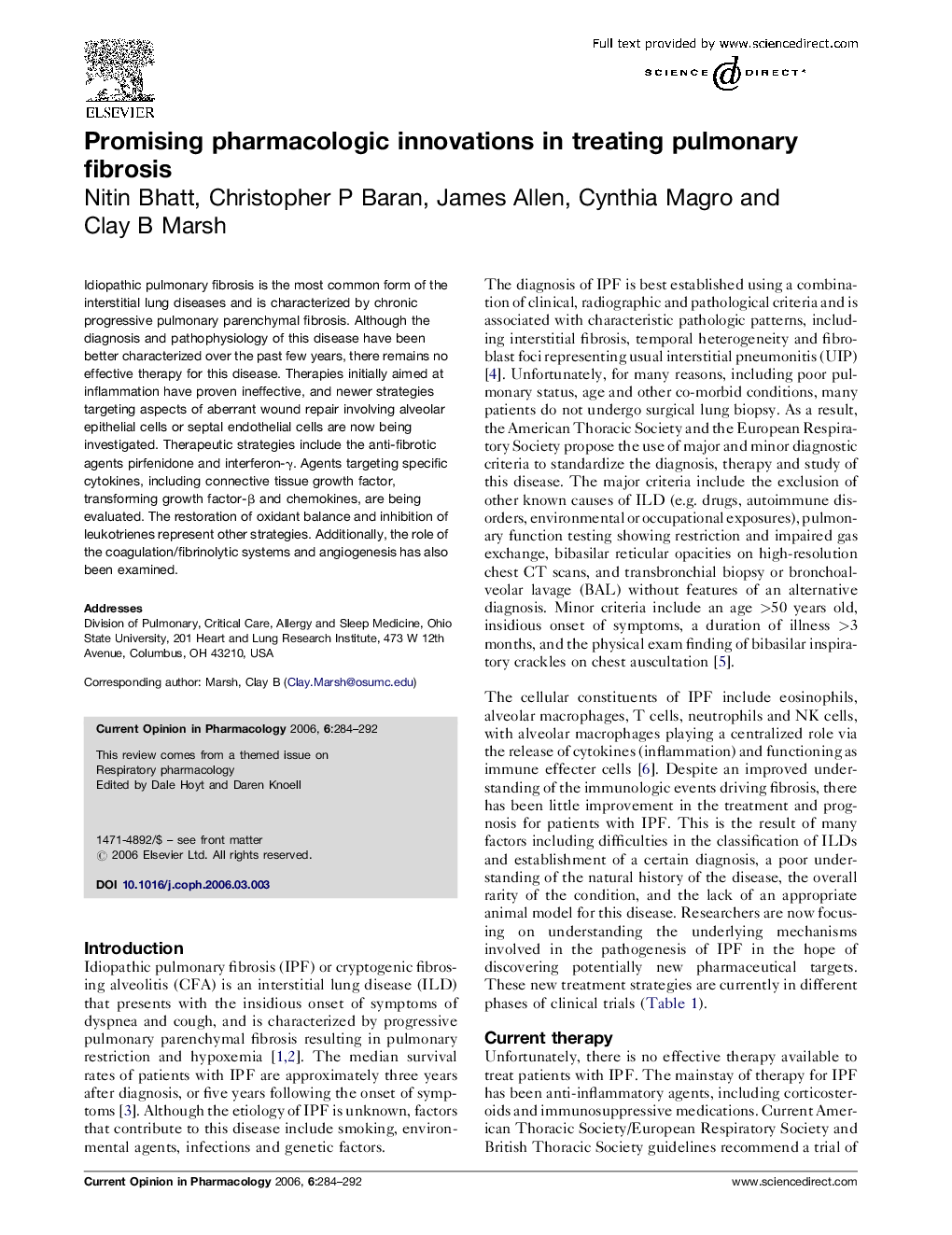| Article ID | Journal | Published Year | Pages | File Type |
|---|---|---|---|---|
| 2530770 | Current Opinion in Pharmacology | 2006 | 9 Pages |
Idiopathic pulmonary fibrosis is the most common form of the interstitial lung diseases and is characterized by chronic progressive pulmonary parenchymal fibrosis. Although the diagnosis and pathophysiology of this disease have been better characterized over the past few years, there remains no effective therapy for this disease. Therapies initially aimed at inflammation have proven ineffective, and newer strategies targeting aspects of aberrant wound repair involving alveolar epithelial cells or septal endothelial cells are now being investigated. Therapeutic strategies include the anti-fibrotic agents pirfenidone and interferon-γ. Agents targeting specific cytokines, including connective tissue growth factor, transforming growth factor-β and chemokines, are being evaluated. The restoration of oxidant balance and inhibition of leukotrienes represent other strategies. Additionally, the role of the coagulation/fibrinolytic systems and angiogenesis has also been examined.
